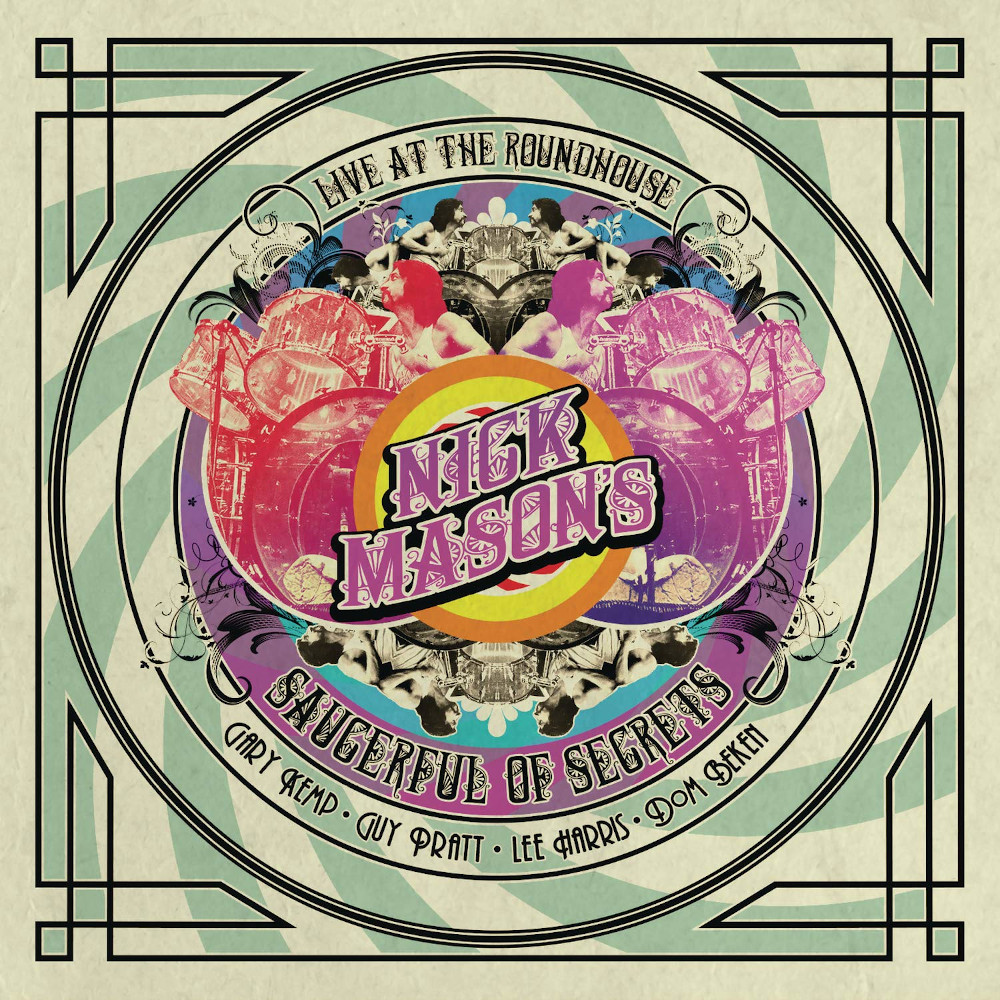 |
Country: UK
Style: Psychedelic Rock
Rating: 7/10
Release Date: 18 Sep 2020
Sites: Facebook | Instagram | Official Website | Twitter | Wikipedia | YouTube
In many ways, this is a quintessential example of what I don't review at Apocalypse Later but it's New Years Eve and 2020 is about to go the way of the dinosaurs so I'm going to indulge myself. This is new music, as the album was released in September 2020, but the newest song on here dates back to when I was only two years old. What's more, it's a live album, something else that I've tended to avoid. And, finally, I never thought in a million years that I'd review a band with Gary Kemp of Spandau Ballet on guitar and lead vocals.
But hey, here we are! Nick Mason, for those of you living under a rock, is the drummer with Pink Floyd and he has been since my mother was a teenager. If that makes him seem old, then that's nothing new, because he formed this band after helping set up a Pink Floyd museum exhibition in 2017, realising it was a long, long time since their early days and he wanted to revisit that. After all, the Floyd released seven albums in the six years before The Dark Side of the Moon, which is precisely as many as they've released in the forty-seven years since. It's shocking to realise that Arnold Layne came out before Sgt. Pepper, when Pink Floyd were still The Pink Floyd.
This project deliberately returns to those early days, so nothing here was written later than Obscured by Clouds in 1972. Frankly, it's a blast listening to these old psychedelic pop and prog rock songs with 21st century production values and, because this is a double album running over an hour and a half, it features no fewer than twenty-two songs for our edification and pleasure. A few songs are notable for being absent, like Careful with That Axe, Eugene, especially given that Mason wrote it, but most of my early favourites are here, but most of my early favourites are here: Astronomy Domine, One of These Days and Set the Controls for the Heart of the Sun.
What surprised me, given that I've surely heard everything Pink Floyd have ever recorded, including a BBC session version of the most obscure song here, Vegetable Man, it's been so long that I've actually forgotten some of these songs. How cool is the riff on Lucifer Sam, for instance, originally released on The Piper at the Gates of Dawn? Why haven't I gone back to Atom Heart Mother the way I've gone back to Meddle or Ummagumma? There are only seven minutes of Atom Heart Mother here, bookended by three more of If, but those are ten minutes of highlights for me.
The material is taken from across the Floyd's early career. Beyond Zabriskie Point, the only album not represented here is the studio half of Ummagumma, which isn't surprising. There are three non-album singles, four songs from each of The Piper at the Gates of Dawn and A Saucerful of Secrets, including a twelve minute take on Set the Controls that gives Mason plenty to do. More and Meddle provide two songs each, while Atom Heart Mother and Obscured by Clouds provide three. Then there's Vegetable Man, which was recorded for A Saucerful of Secrets but didn't see an official release until 2016.
The band are obviously enjoying themselves and that's especially obvious if you watch the version on DVD because they're literally bouncing around. The idea for the band came from Lee Harris, formerly of the Blockheads (of Ian Dury fame) and prolific session bassist Guy Pratt, who's performed with Pink Floyd. Keyboardist Dom Beken used to be in the Transit Kings with Pratt. And, after Mason of course, that leaves Gary Kemp, who I now discover founded his first band after witnessing the Sex Pistols live in 1976 (there's a nod here to Holidays in the Sun on The Nile Song).
They run through this long set without almost any inter-song banter. They clearly assume that anyone going to see Nick Mason's Saucerful of Secrets knows all this material and so it doesn't need them to introduce it. There's also not a lot of audience noise, though this feels live because it has that energy to it. When both show up, in between Green is the Colour and Let There Be More Light, it's surprising to hear. Whoever's talking also sounds oddly like John Peel, which is even more surprising. So is that song, because I'd forgotten that one too. Shame on me.
2020 seemed to be all about setting our controls for the heart of the sun. 2021 promises to be better. I hope that you, wherever you are around this fascinating globe of ours, have a very Happy New Year to cleanse your palate from the last one.





















